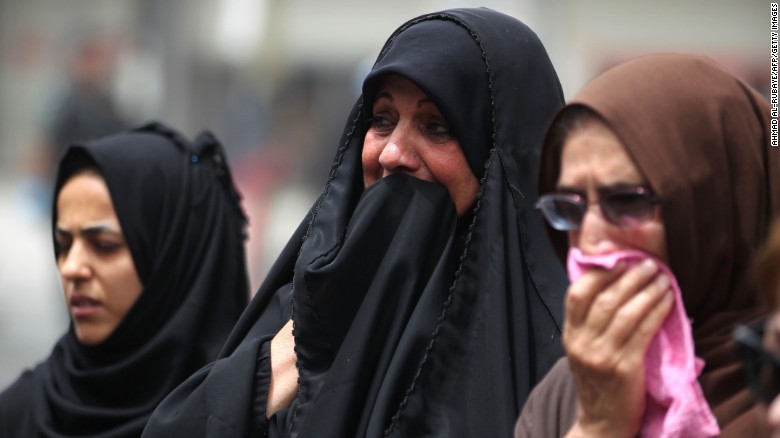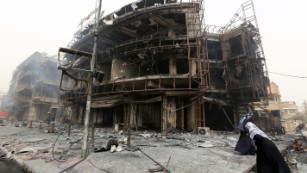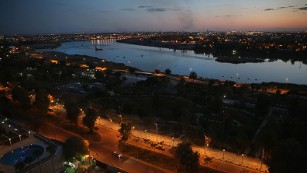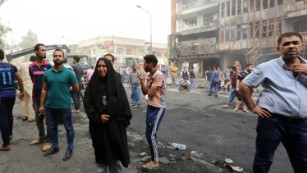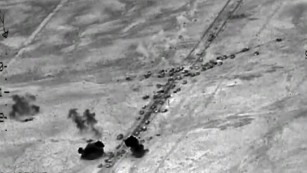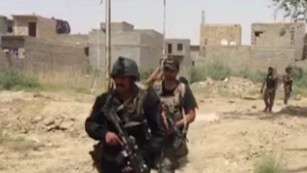
By Ben Wedeman,
CNN International Correspondent
Baghdad, Iraq (CNN)They came in groups, or individually, to the still-smoldering wreckage that was, just a few days ago, a busy stretch of road in the Baghdad neighborhood of Karrada. As they approached the charred skeletons that line the street, their faces go slack with shock. Jaws drop.
Among them was Sami Hadi, a government employee, looking for two of his cousins and their three children who had come here Saturday evening to buy clothing for Eid al-Fitr, the holiday that follows the holy month of Ramadan.
Sami had scoured floor after floor for a trace of them. “There are only charred pieces of flesh,” he told me, his voice flat with exhaustion. “We can’t recognize anyone.”
It’s an overused cliché that Baghdad is accustomed to violence and bloodshed. It’s not. Death is death, and when it visits your home and rips away the lives of loved ones, that pain is as intense here as it is anywhere else.
Sami actually did find a trace of his relatives. He found a phone that looked familiar, checked the SIM card and discovered it belonged to one of his cousins. With that discovery, he left, refusing to say another word.
Um Fadhil, a women in her 60s, continues to search, so far in vain. She had spent more than 24 hours making her way around the city in search of her 29-year old son, Issam. He was last seen here with friends, shopping for clothing.
“I went to the hospitals: nothing,” she said. “I went to all the morgues: nothing. All I saw was burned bodies.”
Police say that of the bodies they’ve recovered, 81 are so badly burned they’re simply beyond recognition. The only way to make a positive identification will be through DNA testing. And they’re not just finding bodies. The stores hit in the blast are littered with body parts, slowly being collected in plastic bags and bed sheets by volunteers.
So you have the authorities in possession of dozens of unrecognizable bodies, and hundreds, perhaps thousands of Baghdad residents searching for loved ones who, for all intents and purposes, disappeared off the face of the earth without a trace Saturday night.
A blast and a wall of fire
As of Monday evening, the death toll stood at 215, making it the single deadliest attack since 2003.
Officials suspect the blast was caused by a truck bomb. The blast was deadly enough in this crowded shopping district, but the wall of fire it created killed even more.
Some were trapped inside shops, shops crammed with highly flammable clothing, perfumes and plastics. One volunteer who was carrying away the dead said the floor in some of the shops was thick with what he called “melted bodies.”
One man, in his late 20s, found his missing brother’s prayer beads and a scrap of cloth he said was the remains of the shirt he last wore. He had run from the rubble sobbing, but was stopped by a pair of policemen, who tried to console him. They sat him in a plastic chair, urged him to drink some water, wet his face to calm him down, all to no avail.
The young man rocked back and forth, weeping as he held the prayer beads before his face. One of his companions handed him a cell phone. “Call you mother,” he said. “She needs to know.”
He stopped weeping, momentarily, drawing in a deep breath and shuddering, and dialed his mother’s number.
“He’s dead,” was all he could say before he broke down sobbing.
‘We have no government’
This carnage was the latest blow to Baghdad by the so-called Islamic State. In the statement the group issued claiming responsibility for the attack, it vowed the attacks would continue.
It wasn’t supposed to be like that. For weeks, officials in Baghdad have insisted that once the ISIS-stronghold of Falluja fell to the government, such bombings would become a thing of the past. Intelligence officials have long believed that many of the car bombs and suicide bombers plaguing the capital came from that city, just an hour’s drive away.
The successful battle of Falluja after IS defeats in other cities, including Ramadi, Tikrit and Baiji, seemed to signal that IS was on the run, collapsing under the sustained assault of pro-government forces, backed up by the U.S.-led coalition.
If the government had gained credit from its campaign against ISIS, it lost much of it in Saturday’s attack. When Prime Minister Haidar al-Abadi came to the scene of the blast Sunday morning, he soon had to flee, his entourage pelted with stones, bottles, shoes and insults.
“Where is the interior minister”? demanded an elderly woman. “Where is the defense minister? Are they asleep?”
“We have no government,” shouted a man nearby. “It’s useless!”
Since al- Abadi made his brief appearance, senior officials have avoided the bomb scene, issuing their condolences through the less lethal channel of the media.
Apart from policemen, firemen and medics, the government is absent from the scene of the crime.
Not for the first time, the people of Baghdad suffer alone, and mourn alone.


